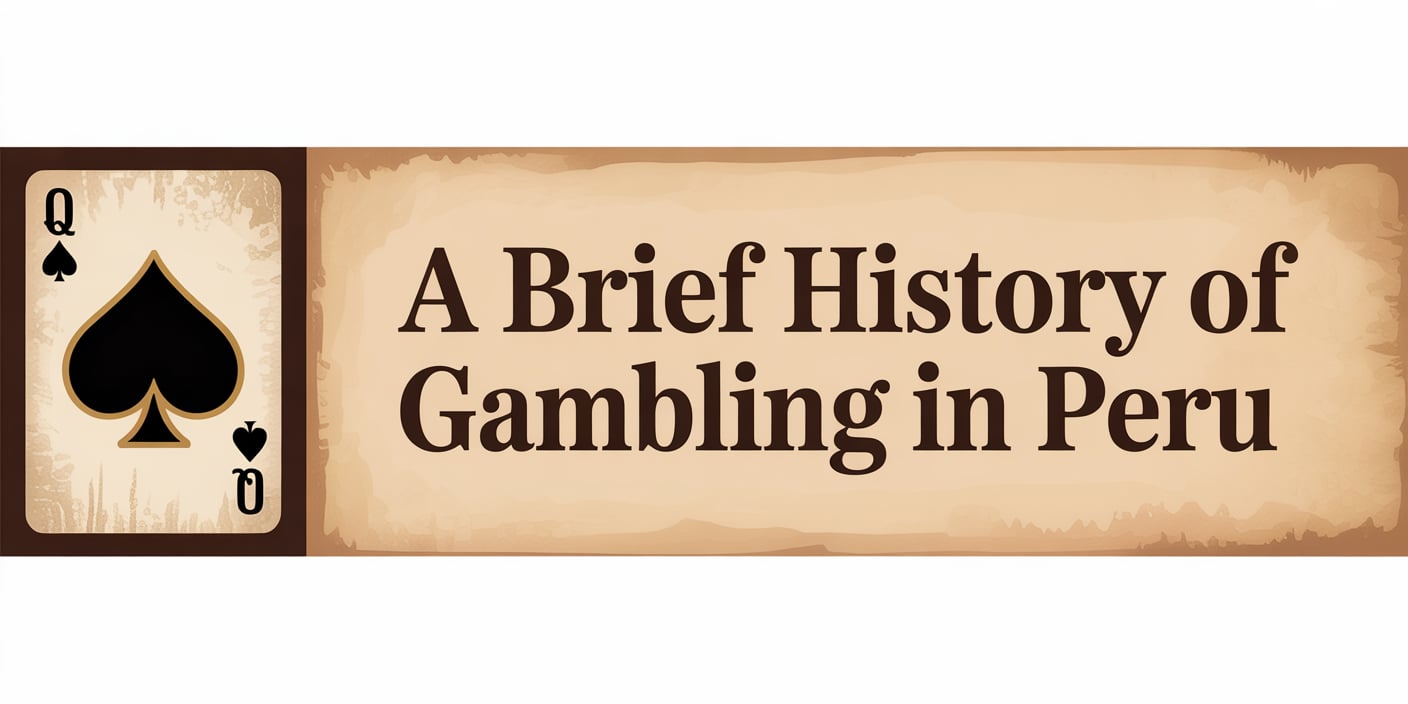A Brief History of Gambling in Peru

The gambling industry in Peru has undergone tremendous growth ever since land-based casinos were legalized. In between, the key milestones have been the introduction of taxation and moral codes for casino operations. Today, both land-based establishments and online platforms — including best categories such as live casino Peru — are under a well-structured and continually regulated market.
Online gaming regulation followed. Unlike most other South American countries, Peru did not prohibit offshore or local online casinos, as long as they met the established domestic standards. This quite liberal policy attracted a number of international and local brands to the market.
Paving the Way for Regulation
The Ministry of Foreign Trade and Tourism (MINCETUR) is the government agency responsible for regulating, implementing, and enforcing all aspects of internet gaming in addition to sports betting in Peru.
Its responsibilities include:
- Issuing licenses to qualified operators
- Monitoring compliance with regulatory stipulations
- Imposing penalties, sanctions, or initiating legal proceedings for non-compliance
- Creating a safe environment for gamblers
Within MINCETUR, the General Directorate of Casino Games and Slot Machines (DGJCMT) plays a significant role in the safeguard of the players, games' quality, and adherence to regulation.
They enacted a comprehensive legal framework to cover most forms of gambling, including special provisions for online sports betting and real-money gaming services. Under this framework, international operators require a license from DGJCMT to operate legally within the nation. The licensing process and the terms under which continued compliance is required are clearly outlined. Non-compliant operators are subjected to significant fines and even exclusion from the market.
A pre-registration phase was opened to local and international gambling operators already present in Peru. During this stage, remote gaming and sports betting operators, certification laboratories, and service providers could express interest and submit preliminary documentation. Although the phase has closed, new players can continue to apply for licenses on a going-forward basis.
Objectives of the New Licensing Regime
The new licensing framework prioritizes consumer protection and safety. With its focus on creating a safe environment, promoting responsible gaming practices, and legitimizing online gaming and sports betting businesses, the rules are designed to create a clear and dependable market framework in Peru.
Overall, the Peruvian framework is more straightforward than the complex licensing framework of some neighboring countries.
Guaranteeing a Secure Gambling Environment
The legislation is centered on consumer protection with the requirement of age verification and participation limits to ensure that gambling is done only by adults. There are also robust protections against fraud and money laundering. Operators must implement Know Your Customer (KYC) procedures to verify users' age, identity, and citizenship.
Registration and Identity Verification
To open an account on a licensed gaming website, players must provide:
- Full legal name(s)
- Type of identification document
- Identification number
- Date of birth
- Nationality
- Residential address (region, province, and district)
- Declaration of politically exposed person (PEP) status
Promoting Responsible Gambling
The regulations encourage responsible gaming by requiring operators to implement self-exclusion mechanisms and support services for individuals with issues of gambling. Adults alone can register and access games accounts. Accounts will be suspended in the event of failure to identify or if the individual is listed in any exclusion registry.
Compliance Readiness
All along the application, certification laboratories, remote betting and gaming operators, and service providers need to input their details via the official MINCETUR website.
Although the website is exclusively in Spanish, international operators are advised to allocate sufficient resources to ensure accurate information input. Providing accurate and complete information during the registration phase is key to avoiding delays and ensuring seamless license processing.
Operators must also have in place the necessary technical infrastructure, including robust KYC systems.
Unlicensed or non-compliant operators can anticipate:
- Substantial financial penalties
- License revocation
- Potential criminal prosecution
The Future of Peruvian Gambling
The licensing regime will impact operator profitability in the short term. The market is, nevertheless, expected to experience stable growth in the next several years.
A regulated internet gambling regime offers operators a solid legal foundation and reduces exposure to legal risk. Increased consumer confidence also means improved revenue potential.
"Peru is a very traditional market for sports betting. We Peruvians love football, and we love to bet on it. The industry has been growing steadily, and now as a regulated market, it'll be even more attractive to suppliers and operators that have expertise in this type of jurisdiction," Nicolás went on.
Thanks to its stable economy and expanding middle class, Peru is widely seen as one of the most attractive gambling markets for international operators.





